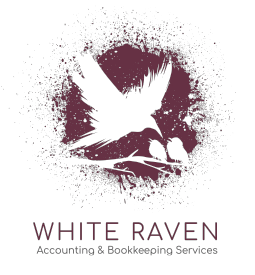As the owner of a Canadian corporation, one of the first questions you’ll face is how to pay yourself—through salary, dividends, or both. Your decision will shape your tax burden, retirement contributions, access to credit, and how your business finances function.
While some business owners default to whatever seems easier, understanding the differences between salary vs dividends in Canada helps you avoid unexpected costs and set up a smarter long-term strategy.
Whether you’re just starting your business or already have steady income, this guide will break down the pros and cons of each option—and how to make the right call for your situation.
Salary vs Dividends: What’s the Difference?
In Canada, incorporated business owners have two primary ways to withdraw money from their company:
- A salary is treated as employment income. You become an employee of your corporation and receive a regular paycheck. Payroll deductions—like income tax, CPP, and EI—are remitted to the CRA, just like they would be for any employee.
- A dividend is a distribution of after-tax profits from your corporation to you as a shareholder. No payroll deductions are required. Instead, dividends are reported via a T5 slip and taxed at a different rate when you file your personal return.
If you’re unsure about terms like retained earnings or earned income, brushing up on accounting concepts can help you better understand how these compensation types impact your financial records.
How Salary Works in a Corporation
Paying yourself a salary means treating yourself like a regular employee. That comes with a few obligations and advantages.
From a corporate perspective, salary is a tax-deductible business expense. Your company can subtract your salary from its profits before calculating corporate tax. You’ll issue yourself a T4 slip and remit payroll deductions regularly to the CRA.
On the personal side, salary:
- Creates RRSP contribution room (since it’s considered earned income)
- Requires CPP contributions (both employer and employee portions)
- Helps when applying for credit or mortgages, since lenders prefer predictable income
For incorporated business owners who want long-term retirement savings, salary opens up opportunities to contribute consistently to registered investment accounts. It also ties into your financial goals and broader wealth-building strategy over time.
How Dividends Work for Business Owners
Dividends are more flexible and often simpler to issue. Rather than running payroll, you declare a dividend from your company’s retained earnings, record it in your corporate minutes, and report it on a T5 slip.
Because dividends come from after-tax profits, they are not a corporate deduction—but they do benefit from a dividend tax credit on your personal return. However, since they don’t count as earned income, you won’t generate RRSP room or contribute to CPP.
That trade-off matters depending on your investment strategy. If you’re relying on corporate profits to build wealth, understanding how different investment accounts in Canada function is key to managing both risk and tax exposure efficiently.
Salary vs Dividends: Tax Implications in 2025
Canada’s tax system is designed with integration in mind, meaning the total tax paid should be roughly the same whether you earn income through salary or dividends. But the exact result depends on your province and income level.
At lower income levels, dividends may result in slightly lower personal tax. At higher income levels, or when maximizing RRSP contributions is important, salary might work better overall.
As an example:
- A $100,000 salary is deductible by the corporation and subject to CPP and personal tax, but it creates RRSP room.
- A $100,000 dividend is paid from retained earnings after corporate tax, and taxed on your personal return—but no CPP contributions are required.
If you’re unsure how your corporate taxes factor into this, reviewing how corporate taxes are filed can help clarify the bigger picture.
When a Salary Makes More Sense
Choosing salary might be the better route if you:
- Want to maximize RRSP contributions
- Plan to build retirement income through CPP
- Need predictable income for mortgages or loans
- Want to lower your corporation’s taxable profit
Salary-based income also makes it easier to take advantage of common Canadian tax deductions that apply to employees and small business owners alike.
When Dividends Might Be Better
On the other hand, dividends make sense if you:
- Don’t want to manage payroll
- Have excess retained earnings and want to simplify your cash flow
- Don’t value CPP or RRSP contributions as much
- Want to reduce your personal tax rate while withdrawing income
That said, if your books aren’t in order, mistakes in how dividends are recorded can lead to CRA issues. Effective small business bookkeeping is essential if you’re planning to rely on dividends long-term.
Can You Use Both Salary and Dividends?
Yes—and it’s often the smartest strategy. Many owners use a hybrid model:
- Pay yourself a modest salary to build RRSP room and contribute to CPP
- Top up with dividends for flexibility or to extract additional profits
This strategy allows you to stay tax-efficient while meeting your personal financial needs. It also helps with setting up a solid financial plan that balances short-term income with long-term growth.
How to Choose What’s Right for You
Ultimately, your choice depends on:
- Your income goals
- Your desire for retirement savings
- Your company’s profits
- Your appetite for admin and compliance
You’ll also want to factor in which tax deductions your business can claim and whether you’re up-to-date on GST/HST obligations, especially if you’re switching from dividends to salary or vice versa.
Final Thoughts: Salary vs Dividends in Canada
There’s no single best way to pay yourself—it all depends on your goals, your business structure, and your approach to planning.
The good news? You’re not locked into one method. With the right bookkeeping, tax planning, and financial strategy in place, you can adapt over time.
Need guidance on structuring your compensation? At White Raven Accounting, we work with incorporated Canadians to build smarter tax strategies and long-term financial plans. Reach out today to get started.





